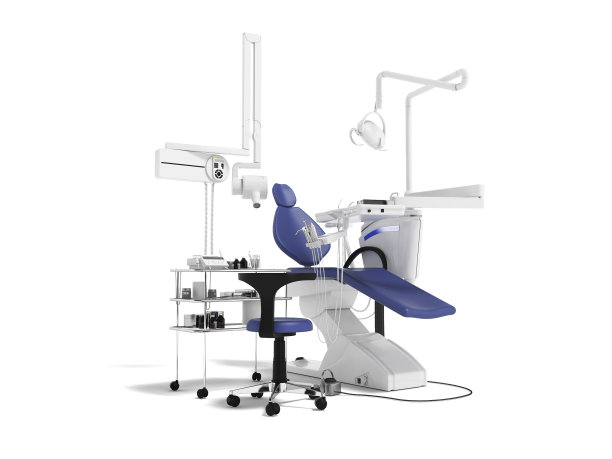Summary: This article delves into the significant relationship between periodontal disease and overall health, elucidating the ways in which oral health impacts systemic health. By exploring four critical aspects of this connection—physiological mechanisms, risk factors, implications for treatment, and preventive strategies—we aim to foster a better understanding of how improved oral care can lead to enhanced health outcomes. Through this comprehensive examination, the article seeks to highlight the necessity of integrating dental care within broader health strategies to mitigate the impact of periodontal disease on systemic conditions.
1. Physiological Mechanisms Linking Oral Health and Overall Health

The physiological mechanisms connecting periodontal disease to overall health are complex and multifaceted. One primary mechanism involves the inflammatory response triggered by periodontal pathogens. When bacteria invade the gums, they elicit an inflammatory response that can enter the bloodstream, potentially affecting various organs and contributing to systemic diseases. This influx of inflammatory mediators can lead to chronic inflammation, increasing the risk of conditions such as heart disease and diabetes.
Furthermore, the presence of periodontal disease has been linked to the production of cytokines, which are proteins that facilitate communication between cells during immune responses. Elevated levels of these cytokines due to poor oral health can promote systemic inflammation. This systemic inflammation plays a critical role not only in cardiovascular issues but also in other systemic health problems, including respiratory diseases and rheumatoid arthritis.
Additionally, research indicates that the oral microbiome—the colony of bacteria residing in the mouth—plays a crucial role in overall health. An imbalance in this microbiome due to periodontal disease can lead to dysbiosis, which is associated with other health conditions. This interplay among oral health, inflammation, and microbial balance underscores the deep connections between periodontal disease and overall health.
2. Shared Risk Factors Between Periodontal Disease and Systemic Conditions
Shared risk factors constitute another important aspect in understanding the linkage between periodontal disease and overall health. Factors like smoking, poor nutrition, and diabetes are known to exacerbate both periodontal health and systemic conditions. For instance, smoking not only compromises gum health but also contributes to a variety of diseases, including chronic obstructive pulmonary disease and various cancers, creating a cyclical effect on both oral and systemic health.
Similarly, individuals with diabetes experience a higher incidence of periodontal disease, as hyperglycemia can impair blood flow to the gums and reduce the body’s ability to combat infections. This interrelationship creates a challenging situation where each condition can worsen the other, making management and treatment more complicated.
Additionally, other factors such as stress, hormonal changes, and age can also influence both periodontal health and overall health. Recognizing these shared risk factors is essential for developing comprehensive treatment plans that address not just oral care but also broader health strategies.
3. Implications for Treatment Approaches in Oral Care
Understanding the interplay between periodontal disease and systemic health has significant implications for treatment approaches in oral care. Treatment should not merely focus on the condition of the gums but also consider the patient’s overall health. This integrated approach is essential for effective management and prevention of both periodontal and systemic diseases.
For example, dental practitioners are increasingly encouraged to work collaboratively with other healthcare professionals. This collaboration can result in shared insights that enhance treatment protocols, ensuring that any underlying health issues are addressed alongside periodontal treatment.
Moreover, periodontal therapy may need to be tailored for patients with systemic conditions. For instance, patients with heart disease may require specific dental care that minimizes the risk of bacteremia during dental procedures. This focused approach aids in protecting both oral and systemic health effectively.
4. Preventive Strategies for Better Oral and Overall Health
Effective preventive strategies play a pivotal role in reducing the risk of periodontal disease and its associated systemic health implications. Regular dental check-ups and professional cleanings are essential for early detection and management of periodontal issues. Education on proper oral hygiene practices, such as thorough brushing and flossing, can empower individuals to take charge of their oral health.
Moreover, lifestyle modifications—like quitting smoking, maintaining a balanced diet, and managing diabetes—can significantly improve both oral and overall health outcomes. Implementing these changes fosters a healthier foundation that can reduce the incidence of both periodontal disease and systemic complications.
Additionally, fostering a holistic health approach that integrates dental care into routine health care is critical. Encouraging patients to view oral health as part of their overall well-being can lead to more proactive health management and better long-term outcomes.
Summary:
The investigation into the link between periodontal disease and overall health highlights the critical need for an integrated approach to health care. By addressing the physiological mechanisms, shared risk factors, treatment implications, and preventive strategies, we can enhance overall health through improved oral care practices.
This connection strengthens the case for prioritizing oral health within general health frameworks, paving the way for better health outcomes across various populations.
This article is compiled by Vickong Dental and the content is for reference only
Vickong Dental
Vickong Dental is a large medical group established in Hong Kong in 2008 by professors from well-known medical universities in Guangdong and Hong Kong, as well as medical doctors from key national '985' universities (including Master's supervisors and senior professors). The chain of branches brings together expert dentists with PhDs and Master's degrees from Hong Kong and Mainland China, committed to providing high-quality dental treatment.
"Vickong Dental Practices the University Motto of 'Healing and Serving Society,' with a Stable Operation for Sixteen Years. It Has Been honored with Hong Kong Enterprise Leaders's Choice,' and is a Global Trusted Implant Center for the Nobel Implant System. Recommended by Hong Kong Metro Broadcast and Guangdong Television, it Serves Customers from Over Thirty Countries and Regions, Gaining the Trust and Favor of Citizens from the Guangdong-Hong Kong-Macau Greater Bay Area and Surrounding Cities.

Thousands of customers' unanimous praise
The most recognized and highly recommended dental service by customers in the Guangdong-Hong Kong-Macau Greater Bay Area
We Ensure You Receive Detailed Care and Attention Here
Hong Kong standards, Shenzhen prices, Your Trusted English-speaking dentists

Vickong Dental Medical-Grade Instrument Disinfection Process
Vickong Dental Medical-Grade Instrument Disinfection Process

Vickong Dental Chain: A Warm and Comfortable Environment for Treatment






Appointment Hours

Q&A
Why choose Vickong Dental?
Vickong Dental practices the university motto 「Medicine to Benefit Society」, with each branch bringing together highly qualified dentists with doctoral and master’s degrees from Hong Kong and the Mainland, and has maintained seventeen years of steady operation。Recipient of 「2024 Hong Kong Enterprise Leaders Brand」, 「2025 Hong Kong Enterprise Leaders Brand」, a Nobel Biocare Global Trusted Implant Center, and a brand recommended by Metro Radio Hong Kong and Guangdong TV。
To date, we have served customers from more than thirty countries and regions,earning exceptionally high word-of-mouth recognition and trusted recommendations from residents across the Guangdong-Hong Kong-Macao Greater Bay Area and surrounding cities
We have eight major branches in Zhuhai、Shenzhen,and a consultation and service assurance center in Hong Kong,so you can book a free consultation at any time for any questions,which is very reassuring.
If I do not accept the quotation after the CT scan, will I be charged??
No! As long as the actual treatment has not started, you will not be charged any fees.
Will there be any additional charges during the treatment process?
No, there won’t be any additional charges. Before treatment begins, we will clearly explain the treatment plan and its corresponding fees. Only after the patient agrees and signs the consent form will we proceed with the dental service.
Can I pay in Hong Kong dollars?
Yes. Vickong Dental accepts payment in Hong Kong dollars. The amount will be converted based on the exchange rate of the day, and the applicable rate will be clearly communicated to you in advance.
Can I reschedule my appointment at any time?
Yes. Please contact us via **WeChat** or **WhatsApp** as early as possible, providing your original appointment time and details, along with your preferred new date and time slot for rescheduling.













